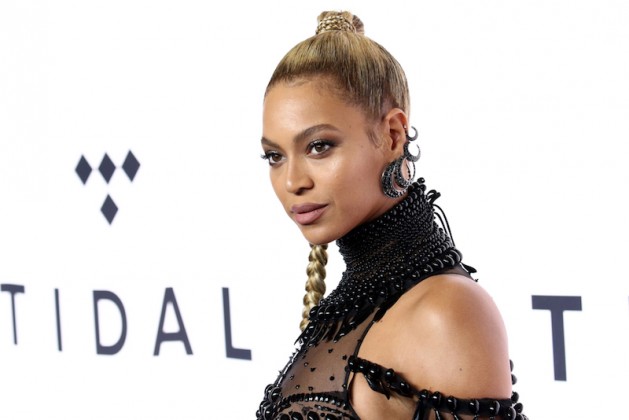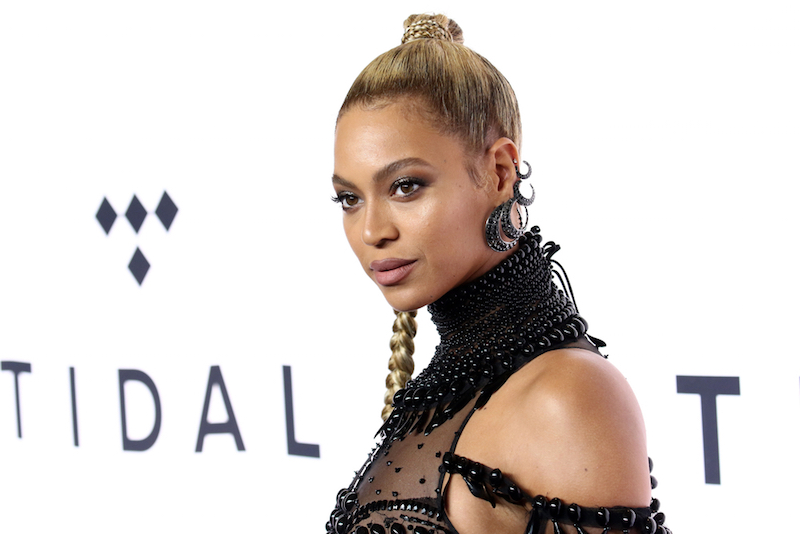
If you were watching the Grammys this week, you saw Adele take “Best Album” with her new album, 25, and then stand up on the podium and explain why Beyonce should have won instead. She even broke the grammy in half, though unfortunately, that seems to have just been an accident instead of an awesome gesture of solidarity.
And Adele definitely wasn’t alone in thinking that Lemonade should have taken the award.
Pretty much everyone who writes about music awards professionally or semi-professionally felt confident saying that Lemonade was the superior album. And the general agreement about why it lost was: racism.
Why Beyonce losing a Grammy matters
Now, most people agreed that it wasn’t an overt racism, where the voters consciously decided on Adele simply because she was white. But many noted that this trend of artists of color getting passed over at the Grammys has a long history and that the real explanation is a kind of systemic racism that is hard to consciously identify.
In the history of the Grammys, only three black women have ever won album of the year. And in 59 ceremonies, only twelve African-American performers have ever taken the award. And given the huge role that people of color have played in shaping our culture’s musical landscape, it seems insane to think that only 12 have won album of the year.
But to many, it’s hardly surprising. Black people, and especially women, have to work harder to achieve the same level of success. The reason is the kind of systemic racism that leads people to subconsciously value their contributions less. Black women are familiar with this sort of thing. And Beyonce’s grammy snub just serves as a highly visible reminder of the kind of glass ceiling they struggle against all the time.
See, they know that they will always have to struggle more than everyone else to get ahead. They know what it’s like to constantly get passed over in their professional lives. So when Beyonce loses album of the year despite having an album that’s almost universally praised, it just illustrates how that same kind of struggle plays out in the life of every black woman in America.
Again, though, that doesn’t happen because the Grammy voters are consciously racist, which actually makes things worse because the kind of racism that’s at play here is far harder to deal with.
It’s not the kind of racism that manifests itself in public lynching but manifests itself in things like this, where a black woman whose widely seen as the greatest performer in pop culture can make her best album ever and still not get validation for it. If Beyonce can’t get that kind of validation, imagine how that makes every black woman across the globe feel.
I mean, after all, let’s talk about what Lemonade was. It was the kind of album that made the country stop and take notice. Remember on the day it rolled out how nearly everyone stopped to talk about it? Remember how we spent weeks speculating about “Becky with the good hair?”
It was a cultural phenomenon (if a brief one) more than an album. At the same time, 25 attracted a lot of praise, but it was nowhere near as significant an event as Lemonade.
So if even with that kind of album, the black woman loses out to the white woman, what does that say about the level of subtle racism that’s at play here? The voters at the Grammys are after all, largely white, older men due to the fact that the requirements for voters say you have to have had a major commercial influence on at least six albums, the kind of thing that tends to isolate the potential pool of older record executives. See the problem here?
That’s why it matters that Beyonce lost. Because it represents how hard it is for people like Beyonce to get recognized. And it shows us why we need to work to change that.



